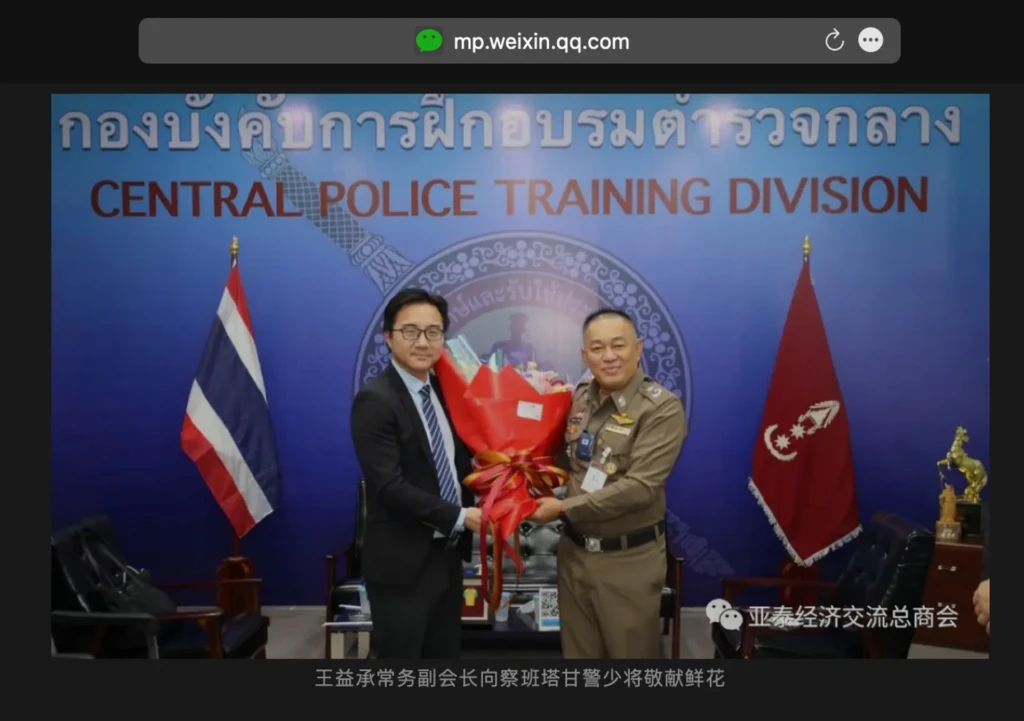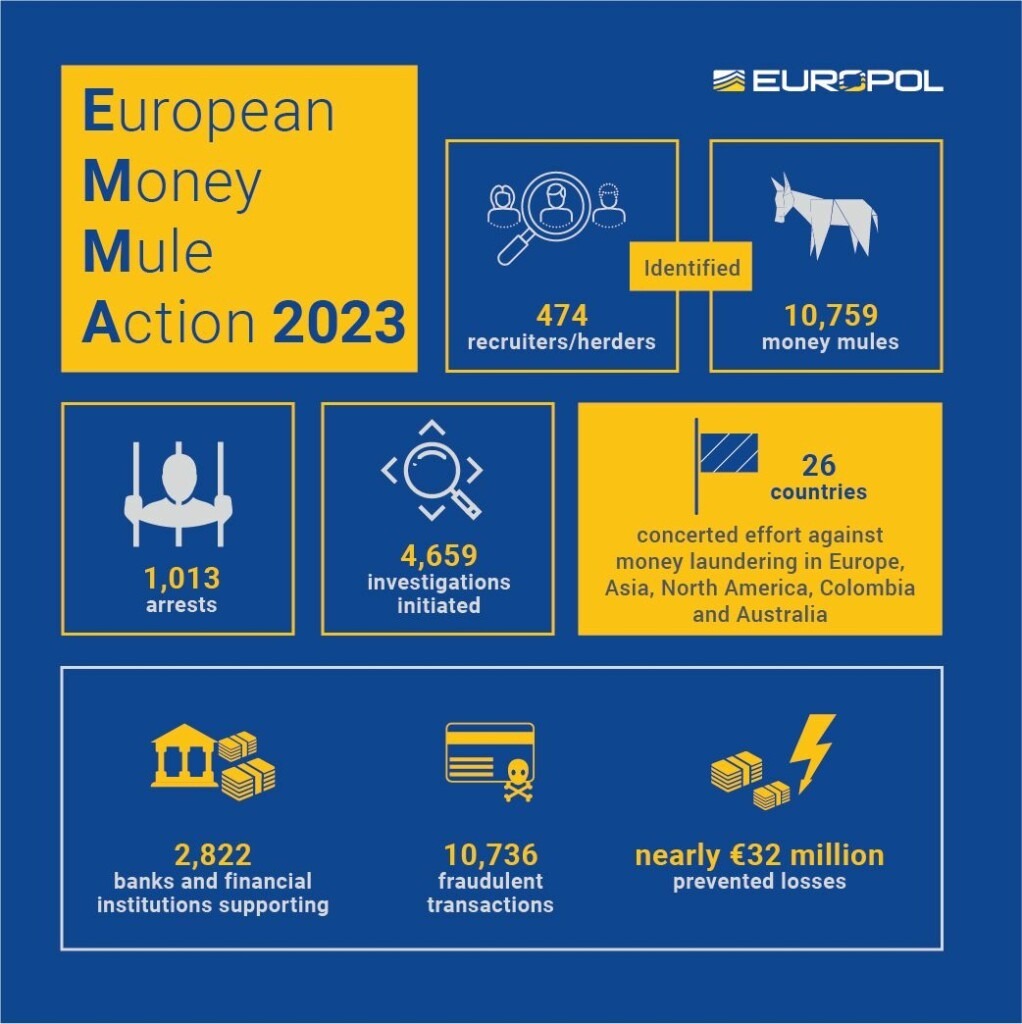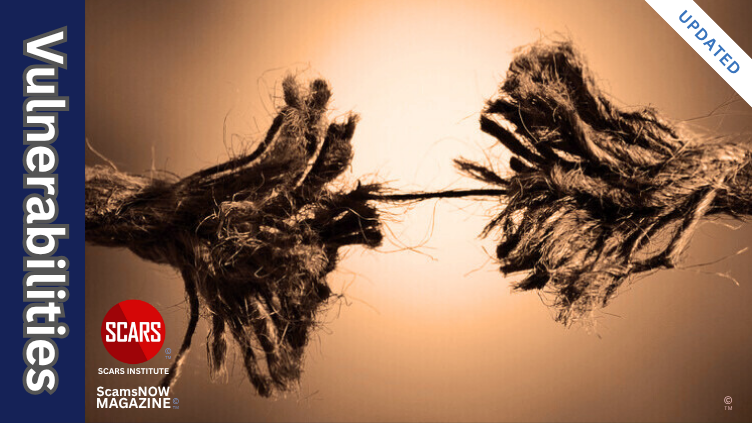EUROPOL Money Mule Action 2023 – Over 10,000 Identified
Authors:
• SCARS Editorial Team – Society of Citizens Against Relationship Scams Inc.
• Portions EUROPOL
For Money Mules, Their Paper Trail Ends In Jail Time For 1,013 Money Mules As A Result Of The 2023 Europol Actions Against Money Mules
2,822 banks and financial institutions join forces with law enforcement agencies against Money Mules in a global effort against money laundering!
Law enforcement agencies from 26 countries, in collaboration with Europol, Eurojust, INTERPOL, and several private industry partners, have once again joined forces to combat a key facilitator of money laundering: money mules and their recruiters. In June, October, and November 2023, several operational phases identified 10,759 money mules and 474 recruiters, leading to the arrest of 1,013 individuals worldwide.
The ninth edition of the European Money Mule Action (EMMA 9), which was funded by EMPACT and led by the Netherlands, was the continuation of an established international law enforcement effort. As in previous years, it involved operations around the globe, such as in Colombia, Singapore and Australia.
Results of the Money Mules Operation include:
- 10,759 money mules identified
- 474 recruiters/herders identified
- 1,013 individuals arrested
- 10,736 fraudulent transactions reported
- 4,659 investigations initiated
- 2,822 banks and financial institutions supported the action
- EUR 100 million losses reported
- EUR 32 million in losses prevented
About EMMA
EMMA is the most extensive international operation of its kind, grounded in the principle that information sharing between the public and private sectors is essential in combating today’s sophisticated crimes. The European Banking Federation (EBF) was the first industry partner in EMMA, playing an active role since EMMA’s inception in 2016. In this year’s endeavor, with ongoing coordination of the EBF, approximately 2,822 banks and financial institutions collaborated with law enforcement. This joint effort also involved online money transfer services, cryptocurrency exchanges, online travel providers, and ‘Know Your Customer’ (KYC) companies, as well as multinational computer technology corporations.
About EMPACT
The European Multidisciplinary Platform Against Criminal Threats (EMPACT) tackles the most important threats posed by organised and serious international crime affecting the EU. EMPACT strengthens intelligence, strategic and operational cooperation between national authorities, EU institutions and bodies, and international partners. EMPACT runs in four-year cycles focusing on common EU crime priorities.
Money Mules & Money Laundering – Crime Fuelled by Crime
As a coordinated action conducted across Europe and the globe, EMMA aims to fight money mule networks benefitting from different types of criminality, such as cyber-enabled fraud against financial institutions and their customers. Building on investigations conducted with the support of private industry partners, law enforcement authorities can then take action, such as arrests, seizures, house searches, and interviews. Operation EMMA’s primary goal is to enhance and exchange cross-border information between the countries involved, thus making a significant contribution to the fight against money mule networks. By doing so, it aims to prevent financial losses and raise awareness about this widespread problem.
The EMMA initiative has successfully strengthened and bolstered cross-border collaboration to combat and dismantle money mule networks engaged in international money laundering. These networks operate by transferring (digital or cash) funds received from third parties to other recipients while earning a commission in the process. The majority of investigations involve cross-border cases: either money is transferred from one country to another, or organized money mules travel globally to open bank accounts, often using fake documentation to deceive KYC procedures.
Recent Trends in a Globalised Criminal Landscape
Investigators have reported a number of recent developments in the criminal landscape of international money laundering.
- One EU Member State has discovered that migrants from Ukraine, seeking refuge from war, are being increasingly targeted as unwitting accomplices in crime. Exploiting their vulnerability and economic distress, criminals coerce them into inadvertently laundering money by forcing them to open bank accounts.
- Bank impersonation crimes are also on the rise, with criminals posing as bank officials predominantly targeting elderly people and persuading them to open new accounts. Perpetrators often visit victims in person to obtain copies of identity documents and signatures.
- Another alarming trend involves the fraudulent use of artificial intelligence to create fake identities, thus making it possible to bypass KYC security features during online account creation.
- In yet another emerging modus operandi, criminals target younger persons and provide them with online means of payment, such as gift cards. These are activated in a tokenisation process for purchasing goods or electronic devices. The mules then hand over the purchased goods to the criminals, who then offer them for sale on the most popular e-commerce marketplaces, receiving a percentage of the illegal proceeds either in cash or in goods.
Investigations have revealed that a series of intricate online fraud schemes are funneling money into accounts operated by money mules. These schemes include investment scams, compromised business emails, bogus holiday rental listings, middleman scams, phishing, messenger app fraud, help desk fraud, counterfeit bank cards, and the use of crypto values transferred from virtual currency exchanges to e-wallets. This global crackdown aims to make it more difficult for criminals to operate and to disguise the flow of their illicit earnings.
Europol’s Role in Going After Money Mules
Europol supported the planning and preparation of all the operation’s phases. The Joint Cybercrime Action Taskforce (J-CAT) supported the actions by facilitating information exchange between law enforcement authorities. During the operational phase, Europol’s analytical support helped to identify the connections between cross-border cases and the money mule networks. Additionally, Europol coordinated and aligned the EMMA 9 awareness campaign with the participating countries and private industry partners.
Participants
Participating Countries:
Australia, Austria, Bulgaria, Cyprus, Colombia, Czechia, Denmark, Estonia, Greece, Hong Kong (China), Hungary, Ireland, Italy, Latvia, Moldova, Netherlands, Poland, Portugal, Romania, Singapore Slovenia, Sweden, Spain, Ukraine, United Kingdom, United States
Participating Agencies:
Europol, Eurojust, INTERPOL
Private Industry Partners:
European Banking Federation, Coinbase, Fourthline, Santander, Tripadvisor, Western Union
More:
- Loren Esse of Des Moines – Police Arrest A Money Mule (scamsnow.com)
- 67 Year Old Money Mule Convicted (scamsnow.com)
- Money Mules – Article Catalog 2023/2024 (romancescamsnow.com)
- Mule Addresses (scamsnow.com)
- If You Are Arrested – Victims Or Money Mules Are Being Arrested (romancescamsnow.com)
- How Money Mules Can Get Free Legal Aid (romancescamsnow.com)
- Money Mules Initiative by the United States Department of Justice (romancescamsnow.com)
- New Global Interpol Campaign Against Money Mules [VIDEOS] (romancescamsnow.com)
- SCARS Webinar: Money Mules (romancescamsnow.com)
SCARS Resources:
- For New Victims of Relationship Scams newvictim.AgainstScams.org
- Subscribe to SCARS Newsletter newsletter.againstscams.org
- Sign up for SCARS professional support & recovery groups, visit support.AgainstScams.org
- Find competent trauma counselors or therapists, visit counseling.AgainstScams.org
- Become a SCARS Member and get free counseling benefits, visit membership.AgainstScams.org
- Report each and every crime, learn how to at reporting.AgainstScams.org
- Learn more about Scams & Scammers at RomanceScamsNOW.com and ScamsNOW.com
- Global Cyber Alliance ACT Cybersecurity Tool Website: Actionable Cybersecurity Tools (ACT) (globalcyberalliance.org)
- Self-Help Books for Scam Victims are at shop.AgainstScams.org
- Donate to SCARS and help us help others at donate.AgainstScams.org
- Worldwide Crisis Hotlines: International Suicide Hotlines – OpenCounseling : OpenCounseling
- Campaign To End Scam Victim Blaming – 2024 (scamsnow.com)
More ScamsNOW.com Articles
-/ 30 /-
What do you think about this?
Please share your thoughts in a comment below!
SCARS LINKS: AgainstScams.org RomanceScamsNOW.com ContraEstafas.org ScammerPhotos.com Anyscam.com ScamsNOW.com
reporting.AgainstScams.org support.AgainstScams.org membership.AgainstScams.org donate.AgainstScams.org shop.AgainstScams.org
youtube.AgainstScams.org linkedin.AgainstScams.org facebook.AgainstScams.org
TABLE OF CONTENTS
- For Money Mules, Their Paper Trail Ends In Jail Time For 1,013 Money Mules As A Result Of The 2023 Europol Actions Against Money Mules
- Results of the Money Mules Operation include:
- About EMMA
- About EMPACT
- Money Mules & Money Laundering – Crime Fuelled by Crime
- Recent Trends in a Globalised Criminal Landscape
- Europol’s Role in Going After Money Mules
- Participants
- More:
- SCARS Resources:
CATEGORIES
![NavyLogo@4x-81[1] EUROPOL Money Mule Action 2023 - Over 10,000 Identified](https://scamsnow.com/wp-content/uploads/2025/04/NavyLogo@4x-811.png)
ARTICLE META
Important Information for New Scam Victims
- Please visit www.ScamVictimsSupport.org – a SCARS Website for New Scam Victims & Sextortion Victims.
- SCARS Institute now offers its free, safe, and private Scam Survivor’s Support Community at www.SCARScommunity.org – this is not on a social media platform, it is our own safe & secure platform created by the SCARS Institute especially for scam victims & survivors.
- SCARS Institute now offers a free recovery learning program at www.SCARSeducation.org.
- Please visit www.ScamPsychology.org – to more fully understand the psychological concepts involved in scams and scam victim recovery.
If you are looking for local trauma counselors, please visit counseling.AgainstScams.org
If you need to speak with someone now, you can dial 988 or find phone numbers for crisis hotlines all around the world here: www.opencounseling.com/suicide-hotlines
Statement About Victim Blaming
Some of our articles discuss various aspects of victims. This is both about better understanding victims (the science of victimology) and their behaviors and psychology. This helps us to educate victims/survivors about why these crimes happened and not to blame themselves, better develop recovery programs, and help victims avoid scams in the future. At times, this may sound like blaming the victim, but it does not blame scam victims; we are simply explaining the hows and whys of the experience victims have.
These articles, about the Psychology of Scams or Victim Psychology – meaning that all humans have psychological or cognitive characteristics in common that can either be exploited or work against us – help us all to understand the unique challenges victims face before, during, and after scams, fraud, or cybercrimes. These sometimes talk about some of the vulnerabilities the scammers exploit. Victims rarely have control of them or are even aware of them, until something like a scam happens, and then they can learn how their mind works and how to overcome these mechanisms.
Articles like these help victims and others understand these processes and how to help prevent them from being exploited again or to help them recover more easily by understanding their post-scam behaviors. Learn more about the Psychology of Scams at www.ScamPsychology.org
SCARS INSTITUTE RESOURCES:
If You Have Been Victimized By A Scam Or Cybercrime
♦ If you are a victim of scams, go to www.ScamVictimsSupport.org for real knowledge and help
♦ SCARS Institute now offers its free, safe, and private Scam Survivor’s Support Community at www.SCARScommunity.org/register – this is not on a social media platform, it is our own safe & secure platform created by the SCARS Institute especially for scam victims & survivors.
♦ Enroll in SCARS Scam Survivor’s School now at www.SCARSeducation.org
♦ To report criminals, visit https://reporting.AgainstScams.org – we will NEVER give your data to money recovery companies like some do!
♦ Follow us and find our podcasts, webinars, and helpful videos on YouTube: https://www.youtube.com/@RomancescamsNowcom
♦ Learn about the Psychology of Scams at www.ScamPsychology.org
♦ Dig deeper into the reality of scams, fraud, and cybercrime at www.ScamsNOW.com and www.RomanceScamsNOW.com
♦ Scam Survivor’s Stories: www.ScamSurvivorStories.org
♦ For Scam Victim Advocates visit www.ScamVictimsAdvocates.org
♦ See more scammer photos on www.ScammerPhotos.com
You can also find the SCARS Institute’s knowledge and information on Facebook, Instagram, X, LinkedIn, and TruthSocial
Psychology Disclaimer:
All articles about psychology and the human brain on this website are for information & education only
The information provided in this and other SCARS articles are intended for educational and self-help purposes only and should not be construed as a substitute for professional therapy or counseling.
Note about Mindfulness: Mindfulness practices have the potential to create psychological distress for some individuals. Please consult a mental health professional or experienced meditation instructor for guidance should you encounter difficulties.
While any self-help techniques outlined herein may be beneficial for scam victims seeking to recover from their experience and move towards recovery, it is important to consult with a qualified mental health professional before initiating any course of action. Each individual’s experience and needs are unique, and what works for one person may not be suitable for another.
Additionally, any approach may not be appropriate for individuals with certain pre-existing mental health conditions or trauma histories. It is advisable to seek guidance from a licensed therapist or counselor who can provide personalized support, guidance, and treatment tailored to your specific needs.
If you are experiencing significant distress or emotional difficulties related to a scam or other traumatic event, please consult your doctor or mental health provider for appropriate care and support.
Also read our SCARS Institute Statement about Professional Care for Scam Victims – click here
If you are in crisis, feeling desperate, or in despair, please call 988 or your local crisis hotline – international numbers here.
More ScamsNOW.com Articles
A Question of Trust
At the SCARS Institute, we invite you to do your own research on the topics we speak about and publish. Our team investigates the subject being discussed, especially when it comes to understanding the scam victims-survivors’ experience. You can do Google searches, but in many cases, you will have to wade through scientific papers and studies. However, remember that biases and perspectives matter and influence the outcome. Regardless, we encourage you to explore these topics as thoroughly as you can for your own awareness.


























![scars-institute[1] EUROPOL Money Mule Action 2023 - Over 10,000 Identified](https://scamsnow.com/wp-content/uploads/2025/04/scars-institute1.png)

![niprc1.png1_-150×1501-1[1] EUROPOL Money Mule Action 2023 - Over 10,000 Identified](https://scamsnow.com/wp-content/uploads/2025/04/niprc1.png1_-150x1501-11.webp)